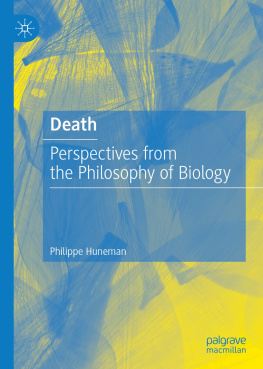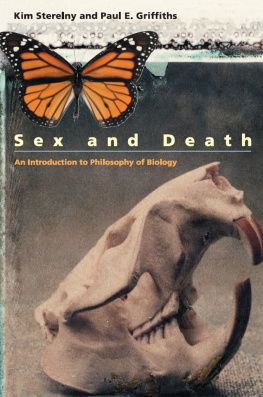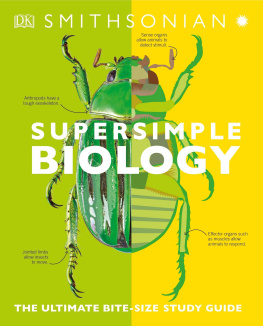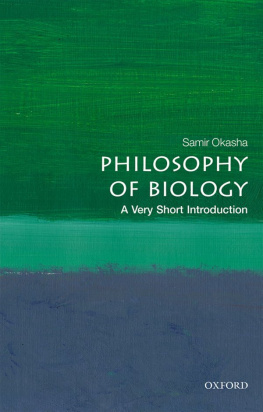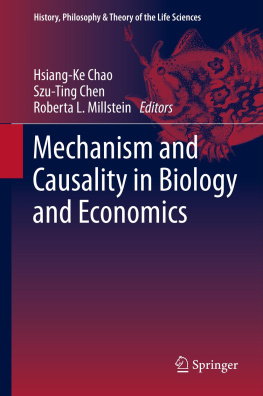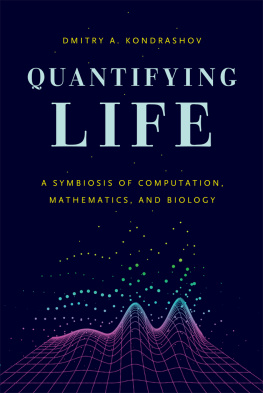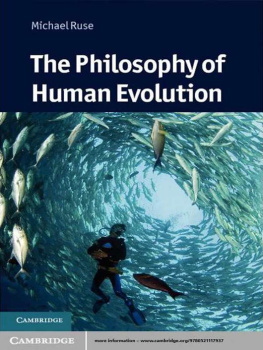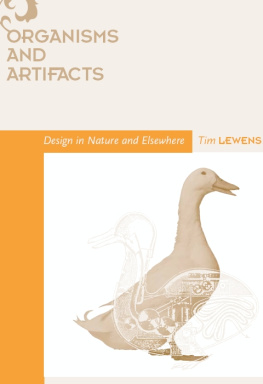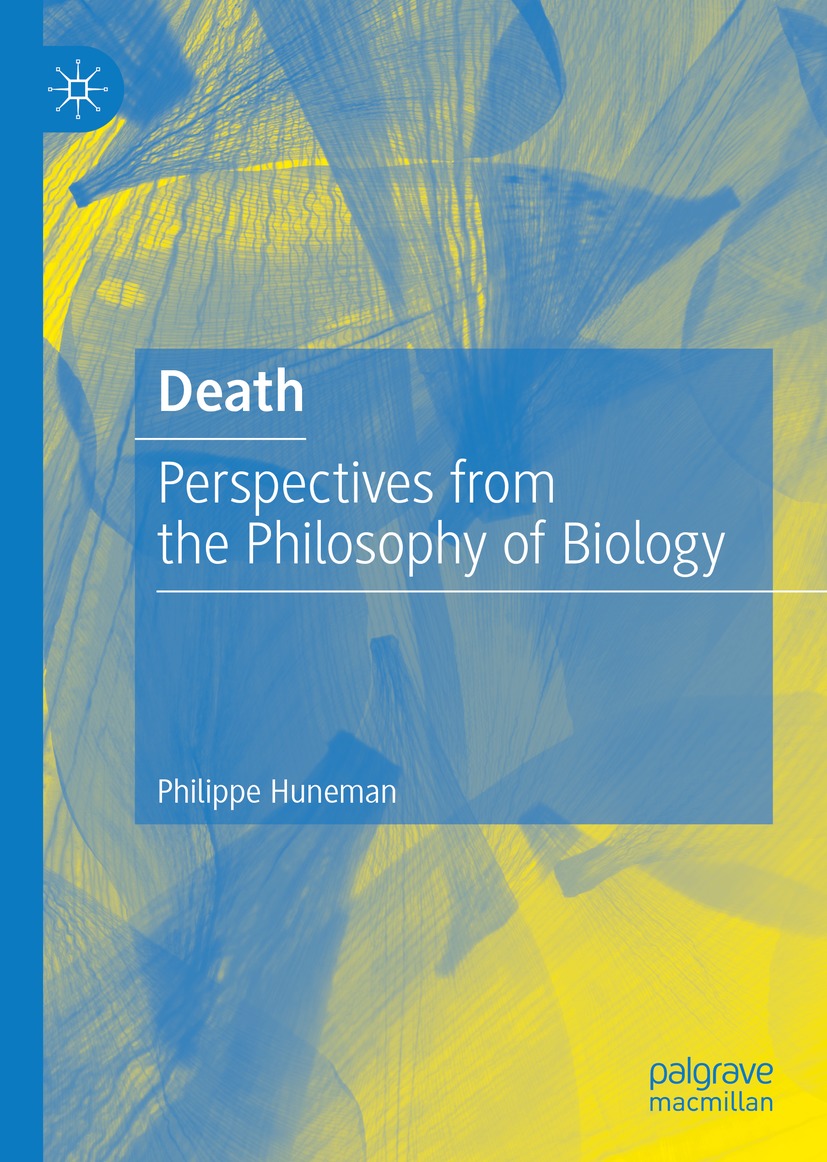Philippe Huneman
Death
Perspectives from the Philosophy of Biology

The Palgrave Macmillan logo.
Philippe Huneman
CNRS/ Universit Paris I Panthon Sorbonne, Institut dHistoire et de Philosophie des Sciences et des Techniques, Paris, France
ISBN 978-3-031-14416-5 e-ISBN 978-3-031-14417-2
https://doi.org/10.1007/978-3-031-14417-2
The Editor(s) (if applicable) and The Author(s) 2023
This work is subject to copyright. All rights are solely and exclusively licensed by the Publisher, whether the whole or part of the material is concerned, specifically the rights of translation, reprinting, reuse of illustrations, recitation, broadcasting, reproduction on microfilms or in any other physical way, and transmission or information storage and retrieval, electronic adaptation, computer software, or by similar or dissimilar methodology now known or hereafter developed.
The use of general descriptive names, registered names, trademarks, service marks, etc. in this publication does not imply, even in the absence of a specific statement, that such names are exempt from the relevant protective laws and regulations and therefore free for general use.
The publisher, the authors, and the editors are safe to assume that the advice and information in this book are believed to be true and accurate at the date of publication. Neither the publisher nor the authors or the editors give a warranty, expressed or implied, with respect to the material contained herein or for any errors or omissions that may have been made. The publisher remains neutral with regard to jurisdictional claims in published maps and institutional affiliations.
Cover illustration: Marina Lohrbach_shutterstock.com
This Palgrave Macmillan imprint is published by the registered company Springer Nature Switzerland AG
The registered company address is: Gewerbestrasse 11, 6330 Cham, Switzerland
It is exceedingly rare to meet a learned book expertly addressing and synthesizing three disparate fields. It is even more remarkable when such a book also tackles a central yet secretive or suppressed topic about who we are as humans and as living beings. The impressive scholar Philippe Huneman has delivered such a book: an encyclopedic volume energetically excavating and fusing the philosophy, history of science, and evolutionary theory behind a deep and mysterious question: why death?. This brilliant book illuminates how our best Western philosophy and science have contemplated and researched death, and it also suggests paths forward for future investigations. Let go of your fears and pick up this extraordinary book!
Rasmus Grnfeldt Winther, Professor of Humanities, University of California Santa Cruz, USA
Death is such a certainty that most people never really stop to consider why this must be so. And because there is nothing it is like to be dead, or at least no way of knowing what it is like, many philosophers as well have presumed that death is a topic about which they can have nothing to say. In this very original and creative work, Philippe Huneman shows us why both of these presumptions are premature: he offers us nothing less than a rigorous philosophy of death and dying. Beginning with the debates that emerge out of the late-18th-century opposition between mechanism and vitalism, Huneman gives the reader a sweeping tour of modern life science that moves through the evolutionary synthesis of the 20th century and recent research in genetics, and concludes with a profound reflection on the ontology of death as seen from a naturalistic point of view. Historically and scientifically informed, philosophically rich and counterintuitive, this book is certain to carve out a new path for future researchers in the philosophy of biology and related fields.
Justin E. H. Smith, University Professor of the History and Philosophy of Science, Paris City University
Biology offers few certainties but one of the deepest ones is that all sexually reproducing organisms die. While evolutionary biologists have occasionally worried about the meaning of death, mainly by studying the evolution of ageing processes, philosophers and historians have until now avoided talk of death. In this marvelous new book Philippe Huneman changes all that, delving into the history of biological studies of death and bringing the philosophical discussion up to date with the current postgenomic age. This book will be essential reading for philosophers of biology as well as of great interest to historians of science and biologists.
Sahotra Sarkar, Professor of Philosophy, University of Texas at Austin, USA
Acknowledgements
They say that no man is an island; I dont know geography enough to assess this claim, but I know for sure that no book is an island. This one has been nurtured, nourished and fueled by many books and papers, but above all, by many discussions with amazing scholars whose knowledge hopefully percolated within these pages.
I am therefore grateful to:
Friends who read the manuscript and helped me with their precious comments and suggestions, without which the result would not be of any interest: Christophe Bouton, Eric Bapteste, Christopher Donohue, Sbastien Dutreuil, Philippe Jarne, Alice Lebreton Mansuy, Tim Lewens, Charles Wolfe.
Biologists who were generous enough to let me share some of their innovative work on death and senescence: Eric Bapteste, Michael Rera, Pierre Durand.
And the many philosophers and biologists with whom, by discussing over the years, I have been able to understand slightly better than I used to do the enigmas of life and deathamong them, and even though they are too numerous to be all mentioned here, let me name Andr Ariew, Denis Walsh, Mark Bedau, Frdric Bouchard, Thomas Reydon, Hugh Desmond, Robert Richards, Phillip Sloan, Robert Brandon, Virginie Maris, Sonia Kfi, Annick Lesne, Alex Rosenberg, Anya Plutynski, Francesca Merlin, Claude Romano, Franois Munoz, Andy Gardner, Minus van Baalen, Rgis Ferrire, Silvia De Monte, Charles Wolfe, Laura Nuno de la Rosa Garcia, Johannes Martens, Antonine Nicoglou, Arnaud Pocheville, Guillaume Lecointre, Thomas Heams, Marshall Abrams, Grant Ramsey, Manuel Blouin, Isabelle Drouet, Michel Veuille, Pierre-Henri Gouyon, Marion Vorms, Thomas Pradeu, Ariel Lindner, Etienne Danchin, Camille Nos, and all the others, including the master and grad students who provided me with invaluable and fruitful discussions along the years.
And I am not grateful to the current neoliberal research policy that pervades the whole academic world; all of us, we can think and work only against it, and in spite of its existence.
The first section of the book has been partly translated from a French text by Anita Conrade. I am very grateful to her invaluable work. It was partly based on a book I published in 1998, entitled Bichat: la vie et la mort (Paris: Puf). Anita Conrade also language checked half of the rest of the book, as did Hugh Desmond; I was also helped regarding language issues by Charles Wolfe and Denis Walsh; Im most grateful to all of them.
The grant ANR-DFG Gendar Generalized Darwinism covered expenses related to some work done in this book.
This book is dedicated to the memory of my two masters, Grard Lebrun and Jean Gayon. I hope that I managed in my work to grasp some reflections of their philosophical flame, and slightly pursue their philosophical pathways.

